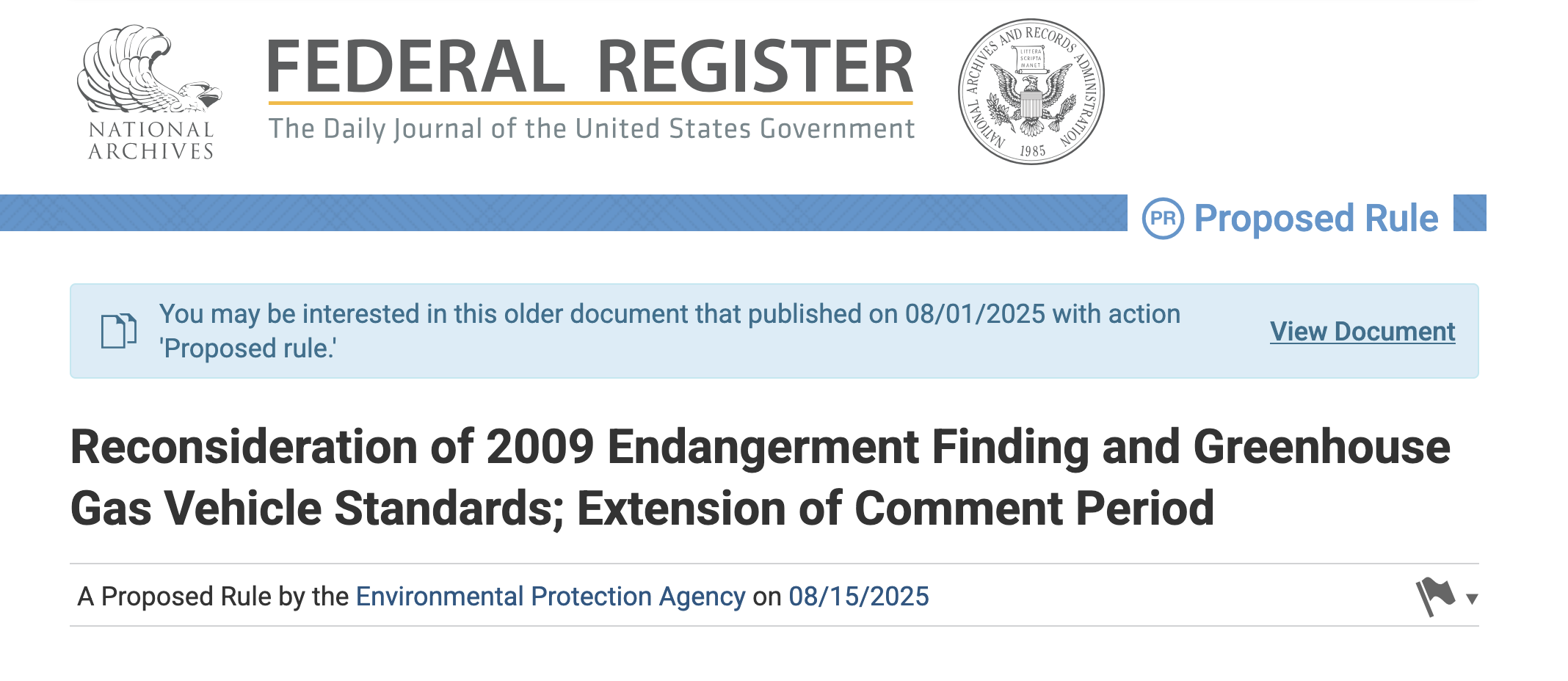EPA Undermines Public Process and Ignores Evidence in Reconsideration of Endangerment Finding
On September 22, 2025, the Environmental Data & Governance Initiative’s (EDGI’s) Website Governance Team submitted a public comment in response to the Environmental Protection Agency (EPA) Proposed Rule: Reconsideration of 2009 Endangerment Finding and Greenhouse Gas Vehicle Standards (Docket No. EPA-HQ-OAR-2025-0194) under Section 202(a) of the Clean Air Act. Read our comment highlights and click for the full text of the comment below.
Comment Highlights
The removal and alteration of public information relevant to the endangerment finding undermines the integrity of the public comment period, the public’s ability to understand and respond to environmental risk, and EPA’s ability to fulfill its mission. EDGI’s public comment outlines the following ways these processes have been undermined in the reconsideration of the endangerment finding:
Removal of information undermines the Administrative Procedure Act (APA)
- In the months preceding the proposed repeal of the endangerment finding, the EPA and other federal agencies suppressed public information related to climate change. EDGI has documented over 900 changes to more than 4,000 federal webpages since January 2025.
- The EPA failed to include critical documents in the docket for the proposed repeal, including the Third, Fourth, and Fifth National Climate Assessments and the Fifth and Sixth Assessment Reports by the IPCC.
- The failure of the EPA to include these leading reports directly undermines the public’s ability to provide informed public comments for this rulemaking.
Proposed rule ignores evidence of harm
- In its proposed rule, the EPA primarily uses one flawed report to substantiate its assertion that the EPA “unreasonably” analyzed the scientific record on climate change in its 2009 endangerment finding and that new developments cast doubt on its conclusions. This report has been criticized for misrepresenting the scientific literature and omitting important data and context by climate experts.
- By contrast, the 2009 endangerment finding drew from scientific assessments of the IPCC, USGRCP, and NAS, which then and now remain the most comprehensive and in-depth analyses of climate science. The Fifth NCA (2023) describes with very high confidence how climate change harms physical, mental, spiritual, and community health through increasing frequency and intensity of extreme heat, drought, wildfires, and disease.
By restricting access to key agency informational resources, as well as internationally acclaimed reports on climate impacts and the risks of climate change to human health, the EPA is actively suppressing the very information the public relies on to engage in the regulatory process, and jeopardizing the integrity of the Administrative Procedure Act and notice-and-comment rulemaking.
CONTACT: Members of EDGI are available to answer media, academic, or community questions about their public comment. Please contact EDGI Communications Coordinator Shannan Lenke Stoll at ShannanLenke.Stoll@envirodatagov.org with any inquiries.

